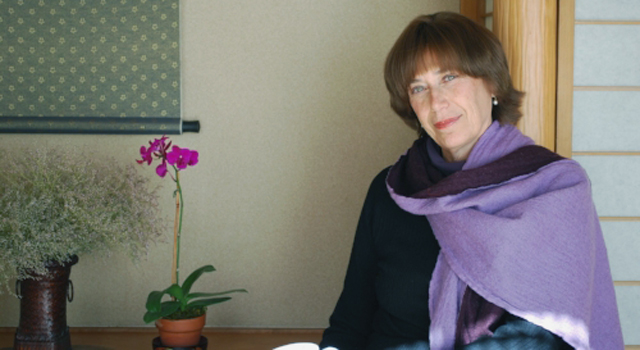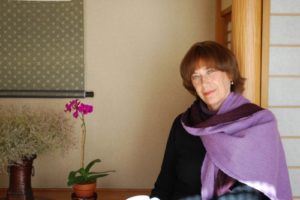
By Vera Schwarcz
I was a budding teenager, a refugee from communist Romania, when the first proposal to “come home to Israel” came our way. We were half-settled in Vienna by HIAS – the Hebrew Immigrant Aid Society founded in 1881 to help escapees from the shtetl (the same organization is now aiding refugees from Africa and Latin America in the US). HIAS had paid the $5,000 per head extortion fee demanded by the Ceausescu regime for each Jew allowed out of Romania.
The understanding was that we were to stay in Vienna briefly, then head to Israel. But in Austria, plans changed. My father had been arrested at the border for trying to take out a small amount of Romanian cash (foolishly trying to imitate richer relatives who had left with gold hidden inside bread). As the weeks of waiting for him in Vienna stretched into months, the Jewish Agency approached my mother with a proposal: “Give us the children. Let them start a new life in our homeland while you wait for your husband’s release.”
Mother would hear none of it. She was not about to let her two girls (my sister 18, me 13) to be taken away to a new country. Especially at a time when she was hoping to settle the whole family in the USA. And so, we never went “home.”
I flew to Israel as a first-time visitor to Israel in the summer of 1978 just at the time of the Camp David Accords. I slept in the Sinai desert, in the last month that it was still safe for Jewish tourists. I do not recall feeling at “home” in that dramatic, arid landscape. I was headed toward China, where my scholarly future seemed to await me with open doors.
In the decades that followed I took more trips to Israel. When our son was in the 4th grade, my husband and I took a sabbatical year on Kibbutz Maaleh Gilboa. By the time of his Bar Mitzvah in 7th grade, we returned for yet another year, while I was teaching Chinese history to graduate students at Hebrew University.
Slowly, almost imperceptibly, a longing to go “home” – to make my home in Yerushalaim – took root in my soul. After my husband’s death in 2014, the trips to Israel multiplied and finally, this year I took the step with Nefesh b’Nefesh to make Aliyah. It has been a huge and difficult decision.
All my children and eight grandchildren remain in the U.S. I seem to be part of a growing cohort of grandparents taking the first step to live in Israel, hoping the children will follow. This summer already, one of my children with three little ones is coming for a month to Yerushalaim. The journey has begun.
For me personally, the difficulty of the decision to make Aliyah was augmented by a soul-weariness: I have changed countries and languages so often. The thought of starting once again a life in Hebrew was daunting beyond words. Then recently, as I was praying from my siddur I realized that I understood all the words. That I was speaking with G-d in a tongue that felt fluid, intimate in my mouth. This, then, I understood was the right time. Not six months before, not a year ago, not 26 years ago when we lived on Kibbutz Maaleh Gilboa and I first started to explore possibilities of a teaching position in Israel.
For each person, the thought of Aliyah surfaces at different times, in different places – but the call does come to each of us who is alert to the unique mission of Jewish history. In the Torah, the dramatic turning point took place with the mission of Moshe’s “spies.” These were noble men sent to explore the Land before the nation freed from Egypt was to come home. They brought a back glowing report laced with dread of enemies – the kind of security worries that are keeping many Americans away from Israel even today. Yet the text makes it clear that the failure of the spies lay not in their dread but in their low self-esteem – “and we were as grasshoppers in our own eyes.”
My own Aliyah on July 10th is taking place in the month of Tammuz leading up to Tisha B’Av – the day of mourning for the destruction of the Temple in Yerushalaim and for the sin of the spies. This timing makes it imperative that I think about and try to undo the sin of spies.
My Aliyah flight from Boston will land in Israel, G-d willing, on the 28th of Tammuz. This date spells out “Koach” – strength in Hebrew and it will remain a personal holiday for me for the rest of my days. I pray that I will have the strength to make this journey, the strength to build a new life in Israel after turning 70, the strength to find new ways of serving the Jewish people and Hashem.
The magnitude of this change is huge. The difficulties ahead loom large before me. Nonetheless as I inch forward with packing, shipping, discarding more that 90 percent of all the books and other possessions accumulated in the decades that we built a home in West Hartford, I think of the Jews standing at the border of the Jordan River before crossing into the Land with Joshua. They had just defeated Sichon, King of Cheshbon – which could be translated as the “King of Calculations.”
Rav Abraham Kook pointed out the metaphorical implications of this moment as follows:
“Before entering the Land, the king of Cheshbon had to be wiped out.
“The people of Israel in the wilderness had made the lesson palpable and unambiguous for themselves and for their descendants. A man’s computations could not rule over him, else he would never take over the Land.” (Quoted in Moshe Lichtman’s book, Eretz Yisrael in the Parsha)
I, too, have been warring with the Master of Calculations for decades. I do not regret our battles. Each brought me a little closer to the Land – the battle with language, the battle with career worries, the battle with how to discard a life time of extra possessions and finally the battle against the despair that I am leaving my children behind.
They are coming one way or another. But one of us had to take the first step. Perhaps it is not all that bad that the elders should pioneer the Land before the young. We have resources and resilience galore. This is reversing the historical pattern of Joshua (the younger leader), and it may just help erase the tragedy of appearing as “grasshoppers in our own eyes.”
Vera Schwarcz is professor emerita of history and East Asian studies at Wesleyan University.
Readers are invited to submit original work on a topic of their choosing to Kolot. Submissions should be sent to judiej@jewishledger.com.







 Southern New England Jewish Ledger
Southern New England Jewish Ledger















